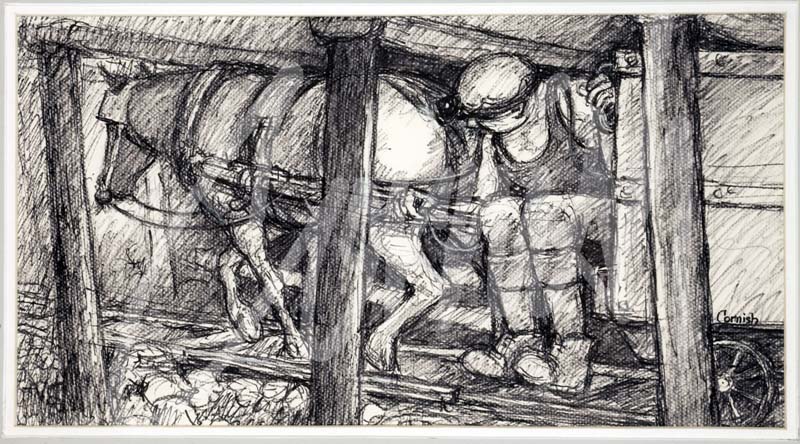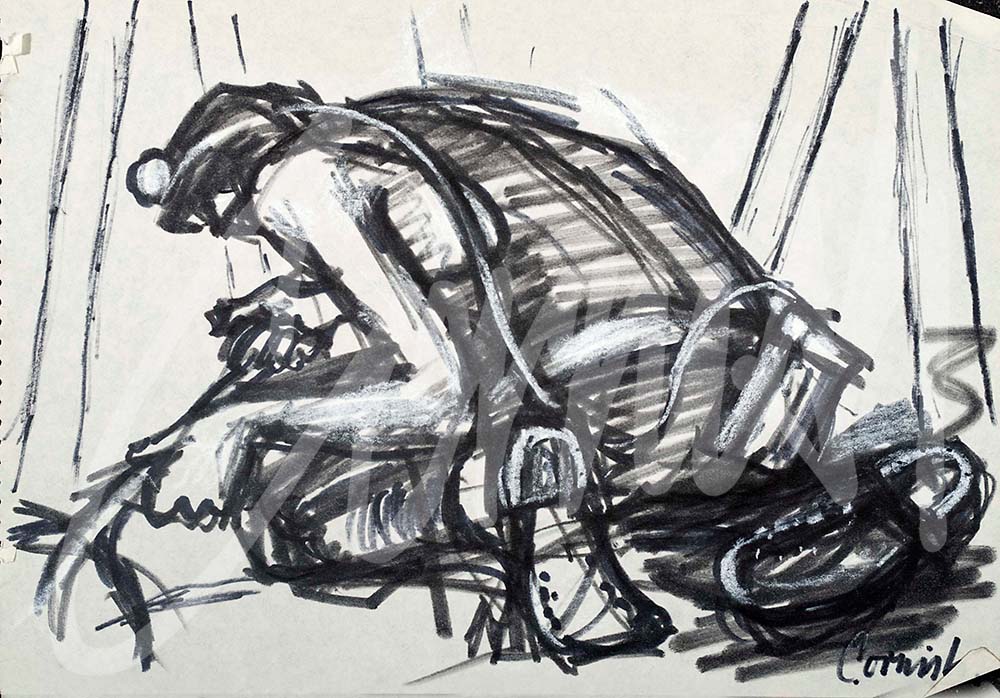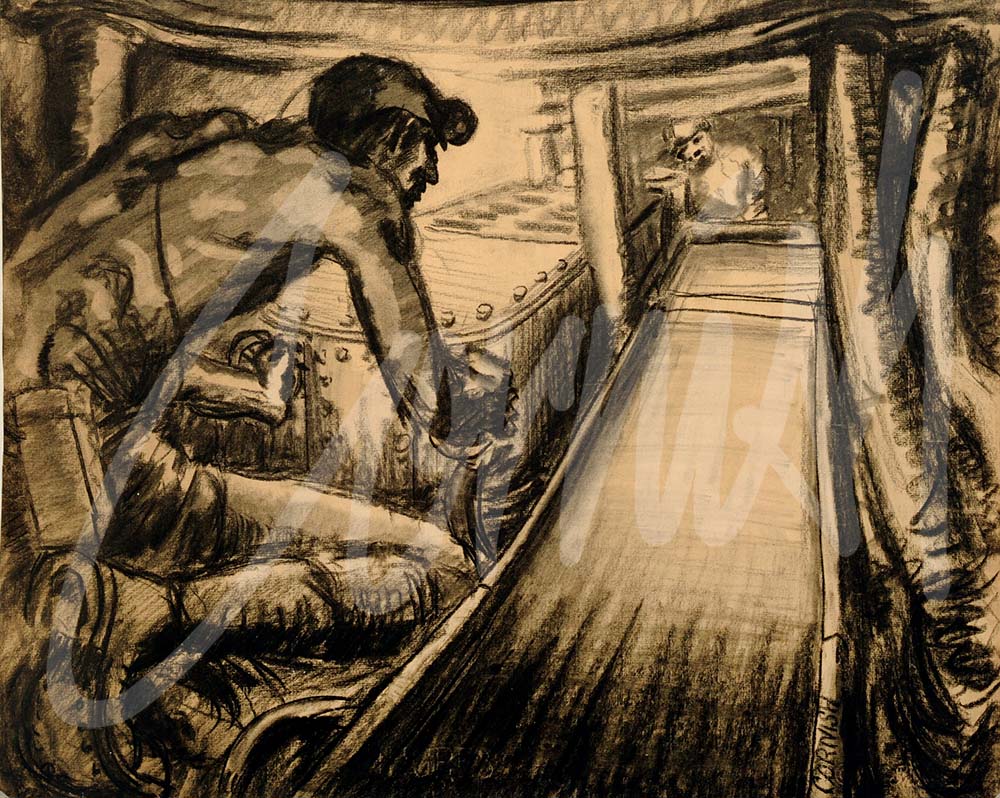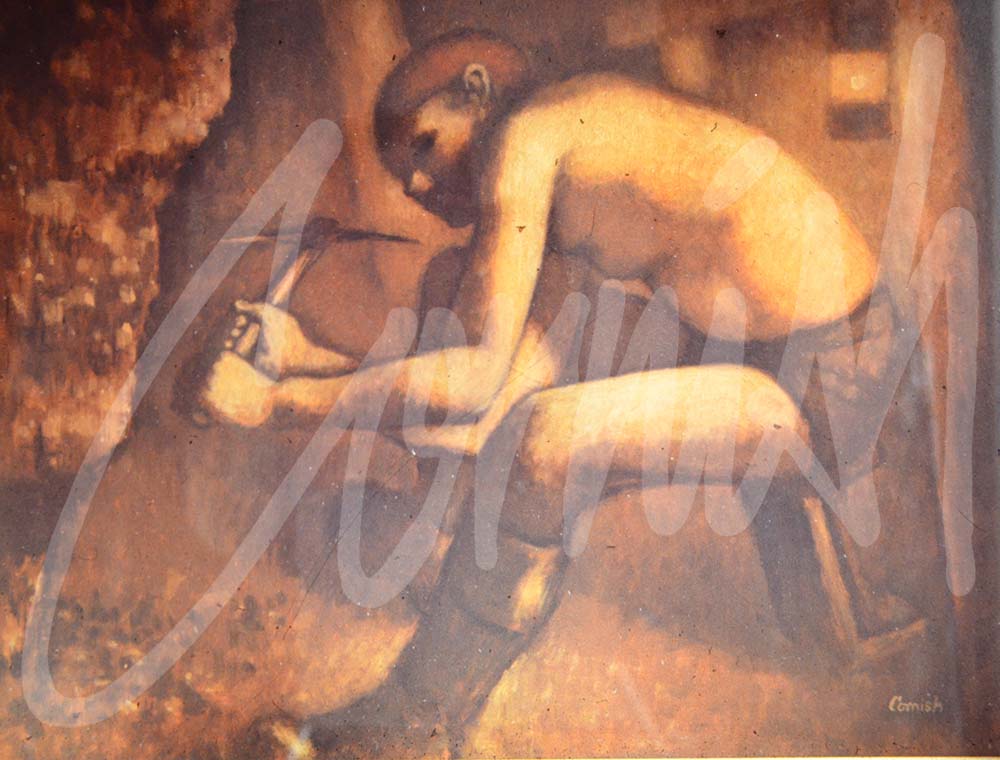
Latest News

Culture and Heritage: An artist’s tale.
When Cornish’s family had the rather sad task of dismantling his studio in 2014 all sorts of materials, equipment, incomplete paintings and scraps of paper were uncovered. Many of the papers contained the scribbled notes of his thoughts at various times as he worked, and some of them appear as comments in italics related to many of the drawings and paintings in ‘Behind The Scenes: The Norman Cornish Sketchbooks.’
Many families throughout the country will have had some association in their history with mining communities, including the culture and heritage therein. One of the characteristics of such communities in the late 19th Century was that almost every colliery had a Brass Band. The apogee was reached towards the beginning of the 20th century with approximately 5,000 bands, although today this has reduced to 1,200. The bands were ambassadors for the coal industry. They provided concerts, and at the annual Durham Miners’ Gala, miners and their families paraded through Durham City behind their own colliery band.
The following story was found on one of the scraps of paper.
A story told me (Cornish) by George Heslop.
He worked in the mine near Alfie Coates. Now this gentleman was a great Euphoniumist. Perhaps the best in England at the time. Alfie had just acquired a new radio and invited George up to hear it as George was also keen on music. George did duly visit him for this reason and found Alfie just in from work, black and unwashed (no pithead baths then). He was delighted to see George and insisted on playing his Euphonium for George. This was done sitting on the fire fender dressed only in his ‘hoggers.’ His wife had made a hasty retreat as she had heard it all before. Alfie asked George if he had any particular tune in mind. George had been very impressed by a cornet solo called ‘Perfection Polka’ which had been played during a concert at the Cambridge (local theatre) by St Hilda’s Colliery Band. Alfie said it was pathetically simple to play but effective, and he played it (as promised) with one finger. It was mostly triple- tongue work. I find this story fascinating. Imagine today a nationally famous musician sitting almost naked and black with coal dust on his heart fender giving a recital.
Men of great talent and intellect had little choice in their route to employment, usually following in their father’s footsteps to become miners. Despite the dangerous working conditions and shabby treatment by coal owners and managers, much dignity, pride and respect was retained through their hobbies, interests and camaraderie. Some of the men went on to become great writers, musicians, gardeners, journalists, politicians, experts in their own field and even highly acclaimed artists…





